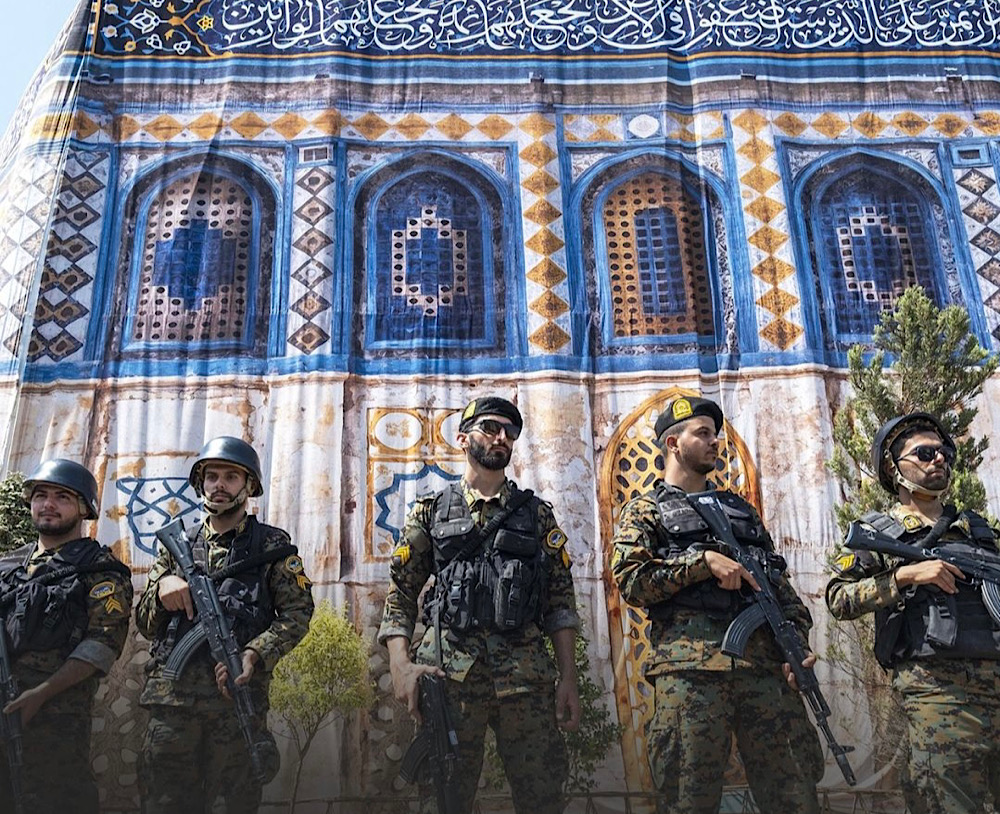Hangings, arrests among minorities and immigrants: Post-war Tehran
In recent days, three men accused of “spying” for Israel were executed. Dozens of Afghan migrants were detained in Operation “Plan Hijrat”. According to the UN, Tehran is deporting up to 30,000 Afghans a day. Arrests and interrogations also among Baha'is and Iranian Jews. An apparent show of force to mask military weaknesses.
Tehran (AsiaNews) - Arrests, hangings, religious minorities and immigrants are being targeted. The crackdown by the ayatollahs in the days following the truce with Israel and the United States, which marked the end of the ‘12-day war’, reflects the hunt for so-called ‘internal enemies’ of the Islamic Republic, who allegedly favoured the Jewish state's military operation.
In recent days, Tehran has carried out the death sentence of three men accused of ‘spying’ for Israel: Edris Ali, Azad Shojaei and Rasoul Ahmad Rasoul, ethnic Kurds from the northwestern city of Urmia accused of helping Mossad in the 2020 assassination of nuclear scientist Mohsen Fakhrizadeh.
At the same time, hundreds of people - mostly civilians - ended up in prisons and police barracks across the country, including 700 accused of belonging to an ‘Israeli spy network’ linked to the Israeli attack on 13 June.
With almost two weeks of war behind it, Iran is striving to project an image of victory at home. “The Islamic Republic has won,” Supreme Leader Ali Khamenei said in a video message on 26 June, after a long period of silence and isolation.
However, within the country's borders, a real show of force is underway to mask its military weaknesses, linked to the defeat suffered at the hands of the Jewish state, with Washington's support. Starting with the huge security breach, with Mossad infiltrating the highest echelons of power in Tehran.
One of the latest operations carried out by the Iranian police was called “Plan Hijrat”. It lasted 24 hours and led to the arrest of at least 18 Afghan immigrants in the north-western province of Ardabil.
Behind the raid is a specific order to identify and deport unauthorised migrants in response to “public demands and concerns”. In addition, those who harbour, transport or exploit undocumented migrants risk prosecution, and reports of suspicious cases are encouraged.
The arrests are part of a wider context of expulsions, which have intensified in recent days. According to the UN, the Islamic Republic is deporting up to 30,000 Afghans a day, while the mid-July deadline for leaving the country voluntarily remains in place, with those who remain at risk of arrest and deportation.
The Interior Ministry itself has commented on the matter, stating that in recent years there have been cases of migrants entering Iran more or less legally and with “hostile intentions”.
This has led to the arrest of dozens of people in recent weeks, most of them on charges of “espionage”. In addition to Afghans, those arrested include immigrants from India and Iraq, also accused of spying for Israel (or the United States) or of acts of sabotage.
Forced confessions by some Afghan migrants have been broadcast on the Islamic Republic's media in recent days. According to sources at IranWire, in some cases, security forces raided hotels known to house migrants of various nationalities and arrested several groups, although there are currently no official statistics on the number of migrants detained.
It is not only migrants who are affected, as the raids imposed by the ayatollahs are also hitting ethnic and religious minorities hard: over the weekend, intelligence agents raided the home of Mansour Meybodi, a Baha'i citizen in Rafsanjan, with a search warrant for the house and an arrest warrant for his son Mahyar Meybodi, from whom they confiscated all electronic devices.
The long wave of arrests and repression has not spared the Jewish community, with at least 35 people summoned by the authorities and interrogated in Tehran and Shiraz. Among the charges are “contacts” in recent weeks with relatives in Israel, according to the activist NGO Hrana, in what is described as the “most impressive operation” against the Jewish minority in Iran in recent years. ‘Emphasis has been placed on avoiding any telephone or online communication with foreign countries,’ the NGO said, citing a source close to the families.
In 2011, the Iranian Parliament passed a law banning travel to Israel. Many Iranian Jews maintain family and religious ties in the country, and rights experts say the law has become a tool of repression.
A prominent figure in Tehran's Jewish community told Hrana that ‘we have seen limited cases [of repression] in the past, but this is unprecedented.’. The scale of the summonses to the barracks and the searches is a source of great concern for the community's safety.
Rani Omrani, an independent journalist, told Iran International that the tactics used by Tehran reflect its inability to deal directly with Israel. ‘Since they cannot reach Israel, they are punishing innocent Jews in their own homes,’ he concluded.
11/08/2017 20:05







.png)










